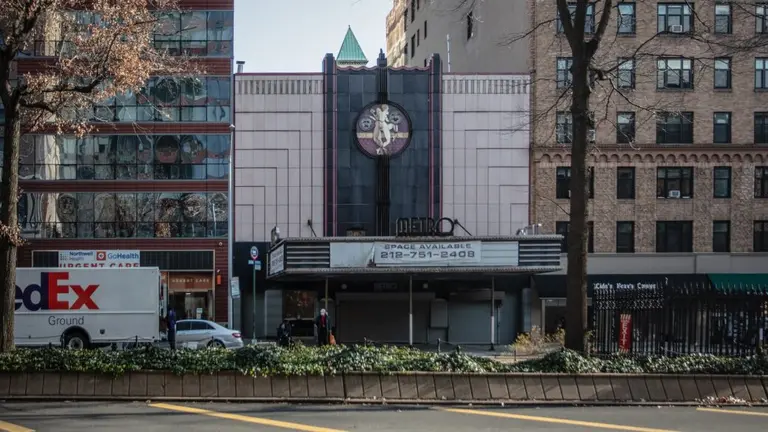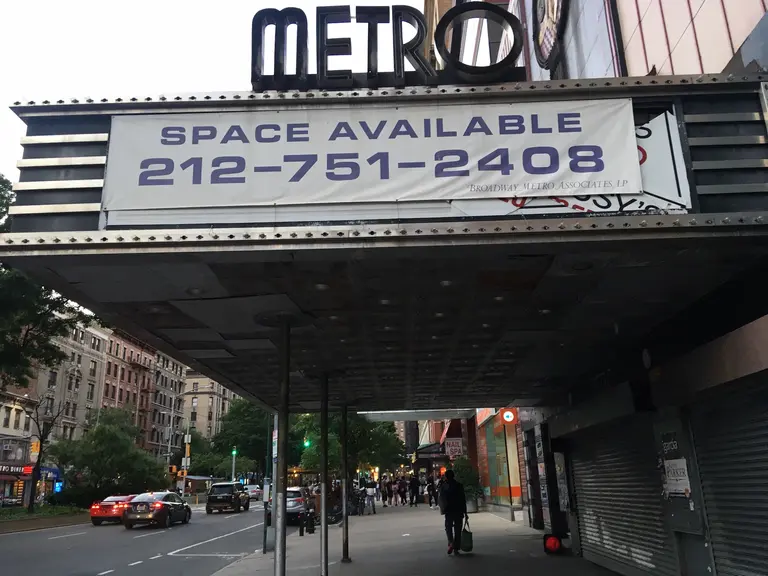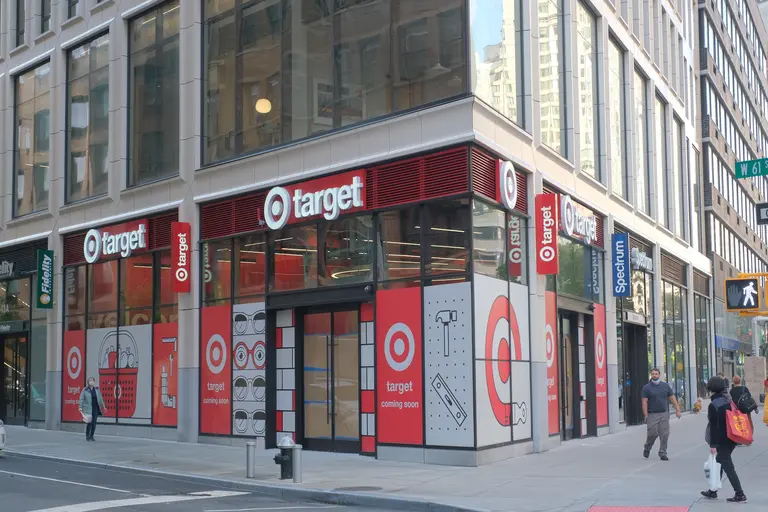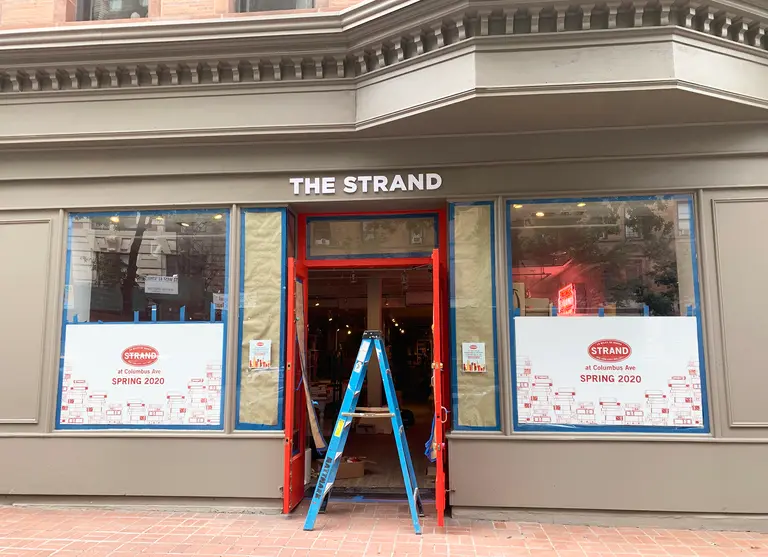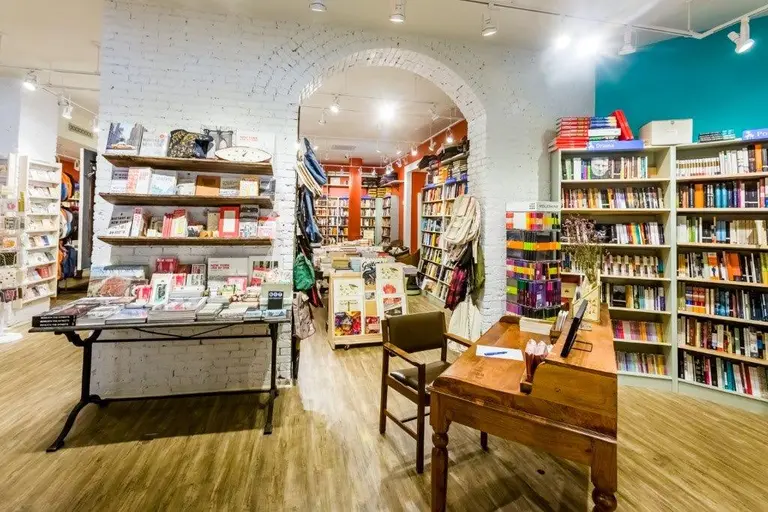Upper West Side’s Metro Theater on track to reopen after 20 years
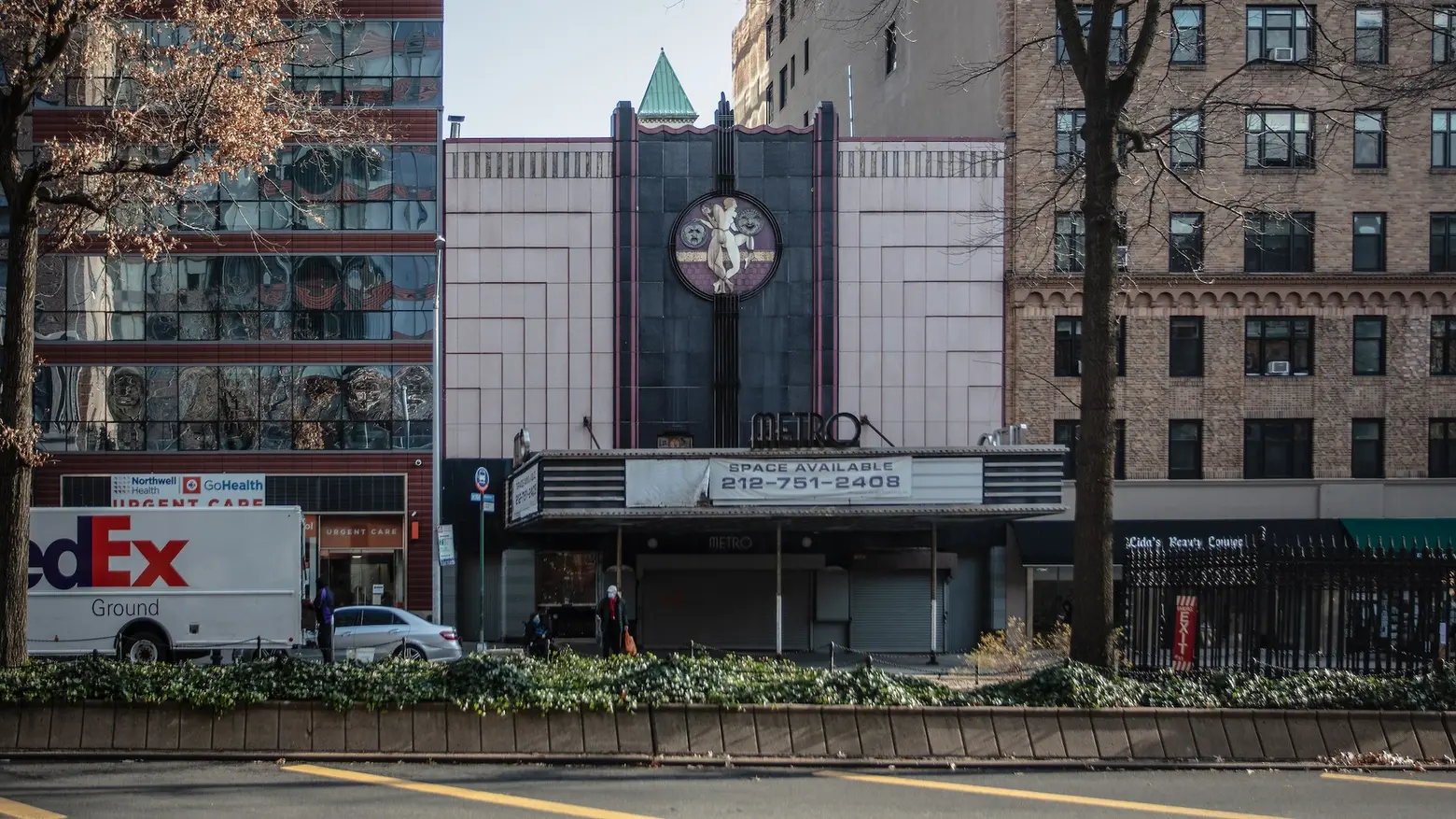
Photo by london road on Flickr
A long-vacant, landmark movie theater on the Upper West Side finally has new owners following a $3.5 million funding boost from Gov. Kathy Hochul. The nonprofit Upper West Side Cinema Center on Sunday purchased the Metro Theater for $6.9 million, with help from Hochul and an additional $500,000 in grants from the State Senate. The nonprofit plans to restore the historic Art Deco building, located on Broadway near 99th Street, with five new screens, a lobby lounge, an education center, and a public cafe.
“For far too long, the beloved Metro Theater has sat empty — waiting for leaders with the courage and conviction to bring it back to life,” Hochul said. “The Upper West Side community deserves another world-class venue for cinema and art, and that’s why I was proud to step in and allocate $3.5 million to make the new Metro Theater a reality.”
Established in 1933 as the Midtown Theater, the 10,260-square-foot building was designated a city landmark in 1989. Designed by Russell M. Boak and Hyman Paris, it stands out for its “vertical emphasis, multi-colored materials, patterned brick, and terracotta ornament based on abstract forms,” according to the Landmarks Preservation Commission.
Perhaps its most recognizable feature is its 50-foot-wide Art Deco facade and metal marquee that hangs on the east side of Broadway, between 99th and 100th Streets.
Since it opened, the space has housed an art-house cinema, two national movie chains, and a pornographic theater. It sat vacant for two decades, with several unsuccessful purchase attempts before being gutted in 2005. Movie chain Alamo Drafthouse nearly bought the property in 2013 but ultimately backed out of the deal. Other potential buyers have included Planet Fitness and Urban Outfitters, as 6sqft previously reported.
The theater was owned by the estate of the late Albert Bialek, who closed it in 2005 amid the rise of larger multiplex theaters. “As a neighborhood theater, the building is obsolete,” Bialek told the New York Times in 2006.
Redevelopment options for the theater have been limited, mainly due to its facade’s landmark status, as well as the sale of the air rights above the building, according to the Times. Bialek, who passed in 2023, said he wanted to see the space revived as a theater.
Friends of Metro Theater have advocated for the theater’s restoration since the start of the Covid-19 pandemic. The group highlighted the closure of many local shops and restaurants, as well as two long-standing movie theaters, as key reasons for reopening the Metro. They believe the restoration could bring much-needed cinema options to the area and help revitalize the community.
In July, the Upper West Side Cinema Center announced its bid for the Metro Theater, with support from celebrities including Martin Scorsese, Ethan Hawke, John Turturro, and others, according to the Times. By November, the nonprofit confirmed it had reached a deal with the Bialek estate to purchase the theater, contingent on securing the required $7 million in funds.
The state contributed $500,000 in grant funds that were championed by State Sen. Brad Hoylman-Sigal. Both the legislative and executive funding were discretionary grants from the fiscal year that just ended, as reported by the Times.
Other major grants came from Steven Spielberg and Kate Capshaw’s Hearthland Foundation, the Klingenstein-Martell Foundation, and the Brandt Jackson Foundation.
“I’m thrilled that West Siders have come together to save the iconic Metro Theater. Thanks to the Upper West Side Cinema Center, and hundreds of individual donors, this art deco masterpiece, which has been abandoned for twenty years, is now on its way to being fully restored and reopened,” Hoylman-Sigal said.
Now, the nonprofit will move forward with phase two, which involves raising the necessary funds to build out the facility and restore the landmark facade. The group is confident it can raise up to $25 million for the restoration, with leader Ira Deutchman expressing optimism that owning the building will encourage those previously hesitant to contribute.
RELATED:
